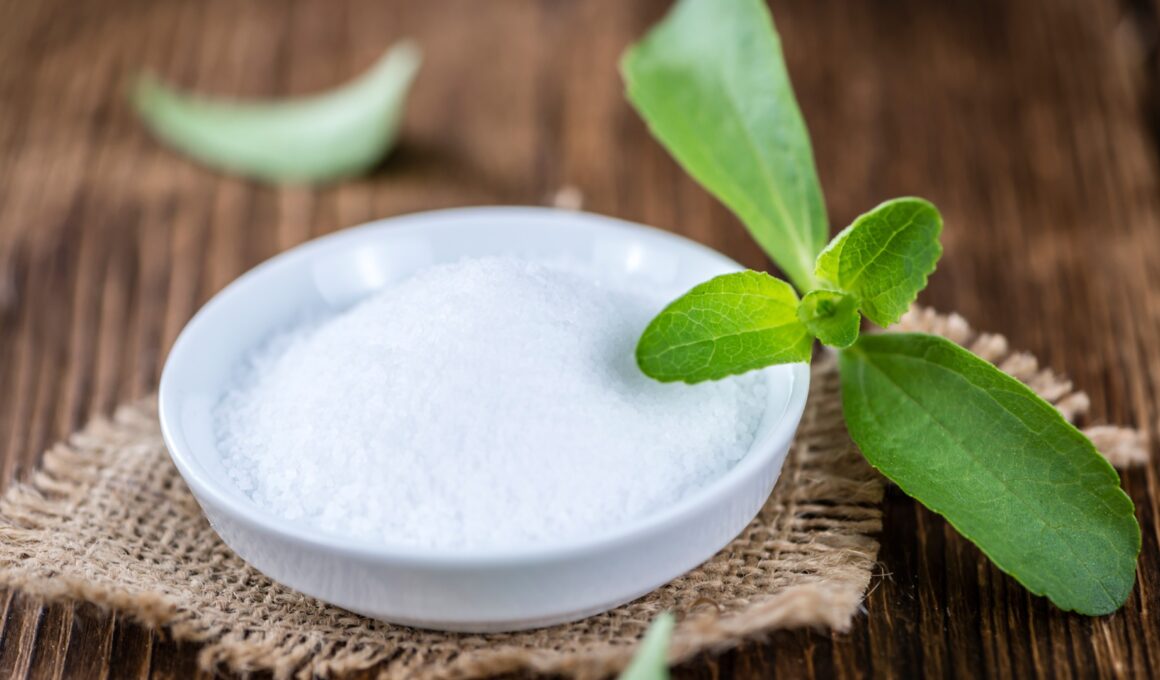According to the US Department of Agriculture, the average American adult should consume no more than 1.4 ounces of sugar per day. That adds up to 32 pounds per year which, if you’ve ever lifted a 32-pound bag of anything, is a considerable amount of food. The awful truth, though, is that the average American adult consumes 156 pounds of added sugar each year. With increasing warnings that links sugar consumption as contributing toward obesity, tooth decay, and possibly a laundry list of ailments including heart disease, it’s no wonder so many people seek out alternative sweeteners, which contain less calories than refined sugar.
Alternatives to sucrose (refined sugar, table sugar) includes natural and artificial sweeteners, ones that are best limited to sweetening coffee and tea, some that work well in baking, and even a few products that have been in use for centuries. Which one–if any–is right for you? Here are some popular choices:
Xylitol is a sugar alcohol that is derived from corn, beets, and other produce. It helps prevent plaque-causing bacteria from sticking to teeth, making it a good choice for sugar-free gum. While much sweeter than sugar, xylitol is only partially absorbed by the body, so it provides fewer calories than sugar. Beware: The more you eat, the more you risk gastrointestinal distress. For baking, it is recommended that you use half as much xylitol as you would sugar.
Stevia has grown enormously popular in the US in a short amount of time. This now-ubiquitous substance is extracted from a South American herb and is sold under the trade names Sweetleaf and Truvia. It is 40 times sweeter than sugar but has zero calories and will not cause a spike in blood sugar levels. It is not recommended for baking.
Sucralose, sold as Splenda, is created by chemically altering sugar molecules so that the body does not metabolize it. It looks and feels like sugar, and it is ideal for adding to coffee and using for baking.
Aspartame, sold as Equal and Nutrasweet, is popular in desserts. It denatures under heat, so do not use it for baking.
Agave Nectar, made from the same plant that gives us tequila, contains more calories than refined sugar, but it is much sweeter, so less is needed. Agave nectar has a high fructose content, which may make it a greater obesity risk than table sugar.
When researching sugar and sugar substitutes, keep in mind that some published studies on the subject have been funded by the manufacturers themselves, while others have been published by competitors. Even government studies are not free from corporate influence; food lobbyists are a powerful influence on those who legislate food safety. If we are to be truly certain that we are making the safest choice in a sweetener, there is only one way to go.
The Best Sugar Substitute
The best way to cut down on sugar in your diet is to simply cut down on sugar. Our bodies are not meant to be as sedentary as the average American’s has become over the past few decades. We don’t get the endorphin rush from working our muscles toiling in fields of grain or hunting down our entrees that our forbearers did. One reason we consume more sugar is to stimulate our brains’ pleasure centers, and this contributes toward a downward spiral of poor health.
When we try to fool our bodies that we are eating sugar, we aren’t doing them much good in the long run, regardless of whether one use substitutes for weight loss or to enjoy a varied diet within the limitations imposed by disease or health risk.
Rather than mimic unhealthy eating choices, we should adopt healthy choices. When you are thirsty, drink water; make soda an occasional treat. If you’re feeling low in energy, get into an exercise routine: walk with a loved one, take up barefoot running, or hike in the woods. The benefits of a healthy diet and regular exercise extend to every aspect of life.




